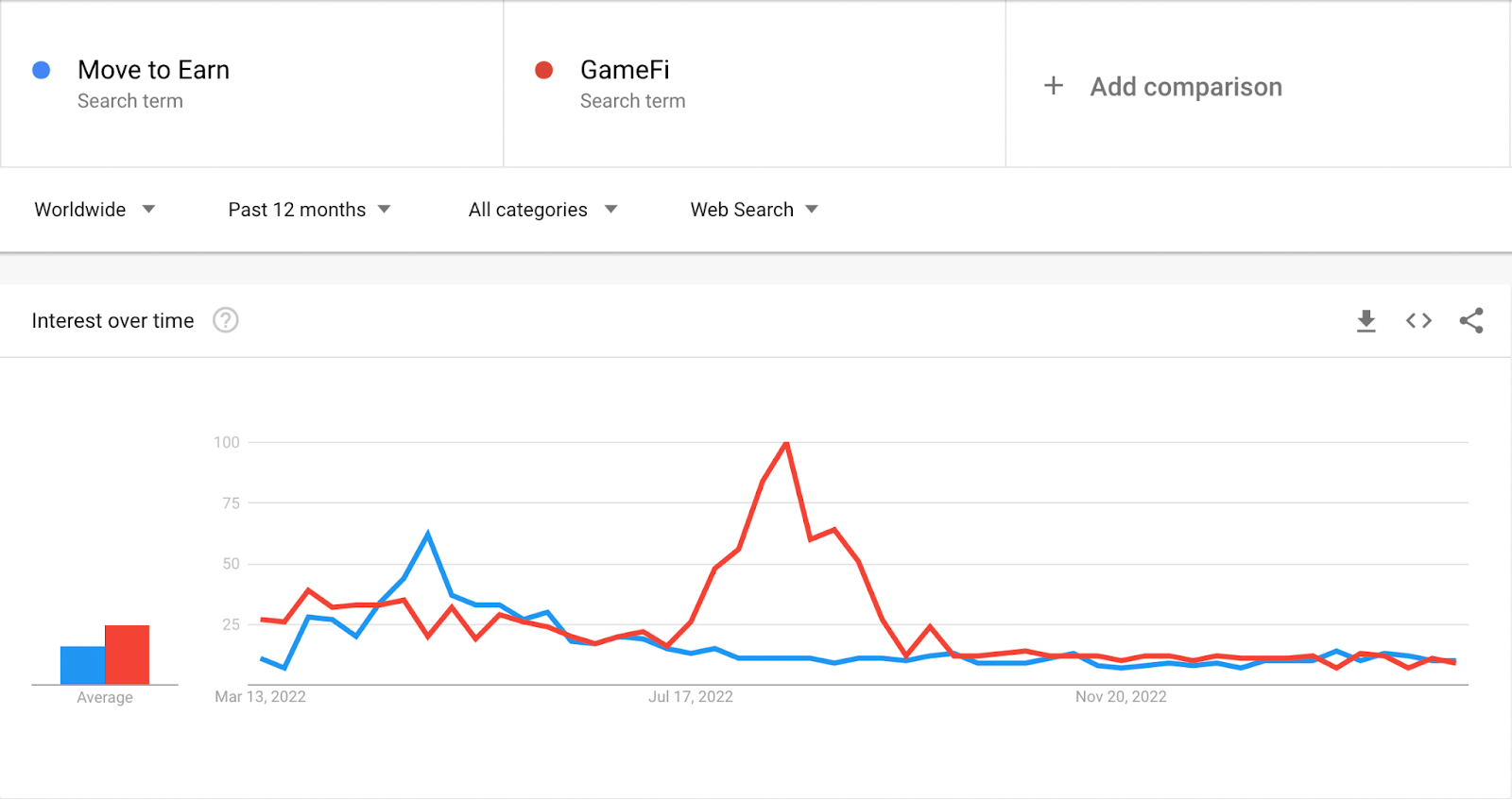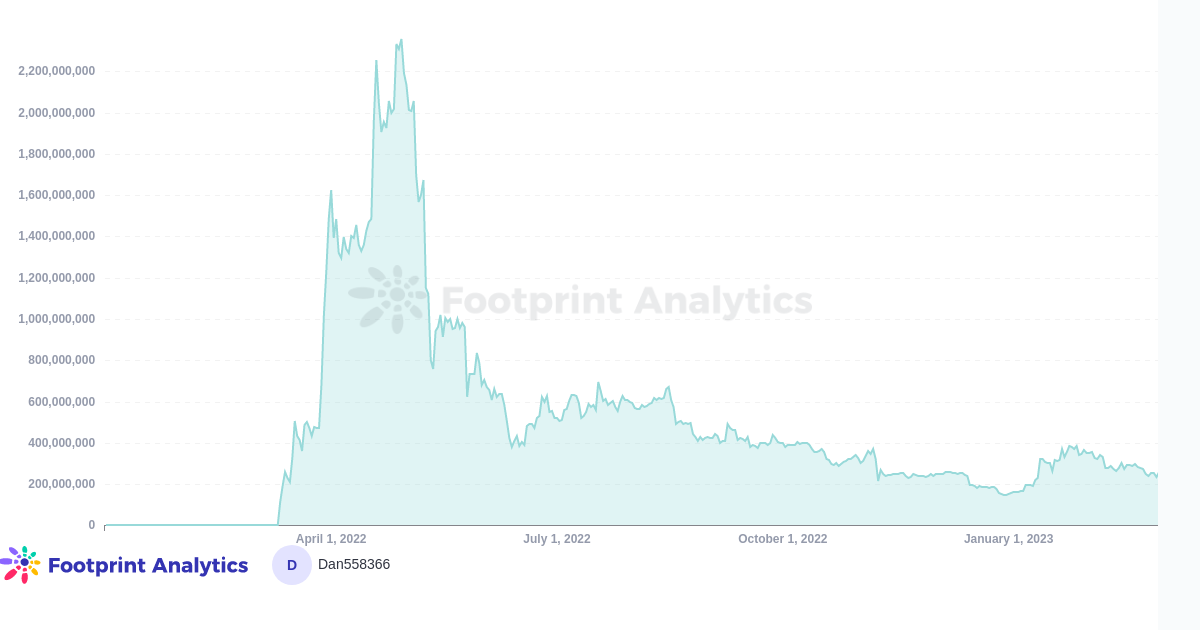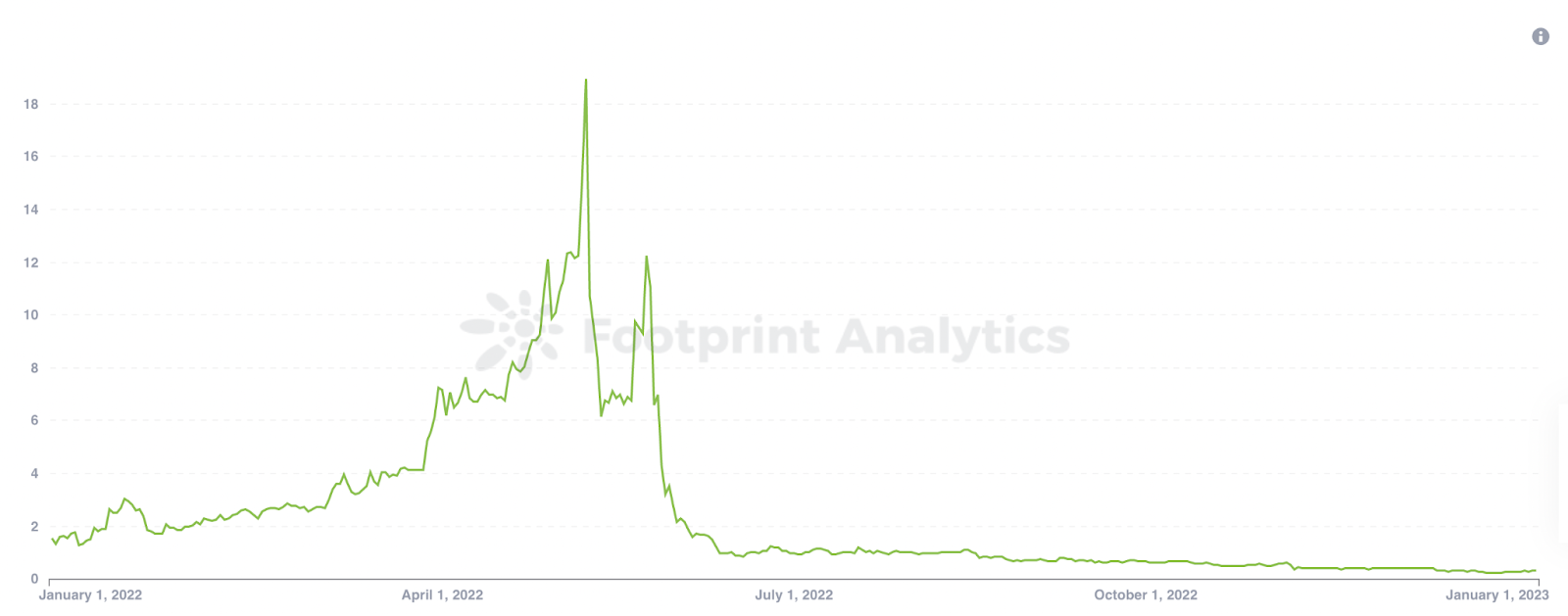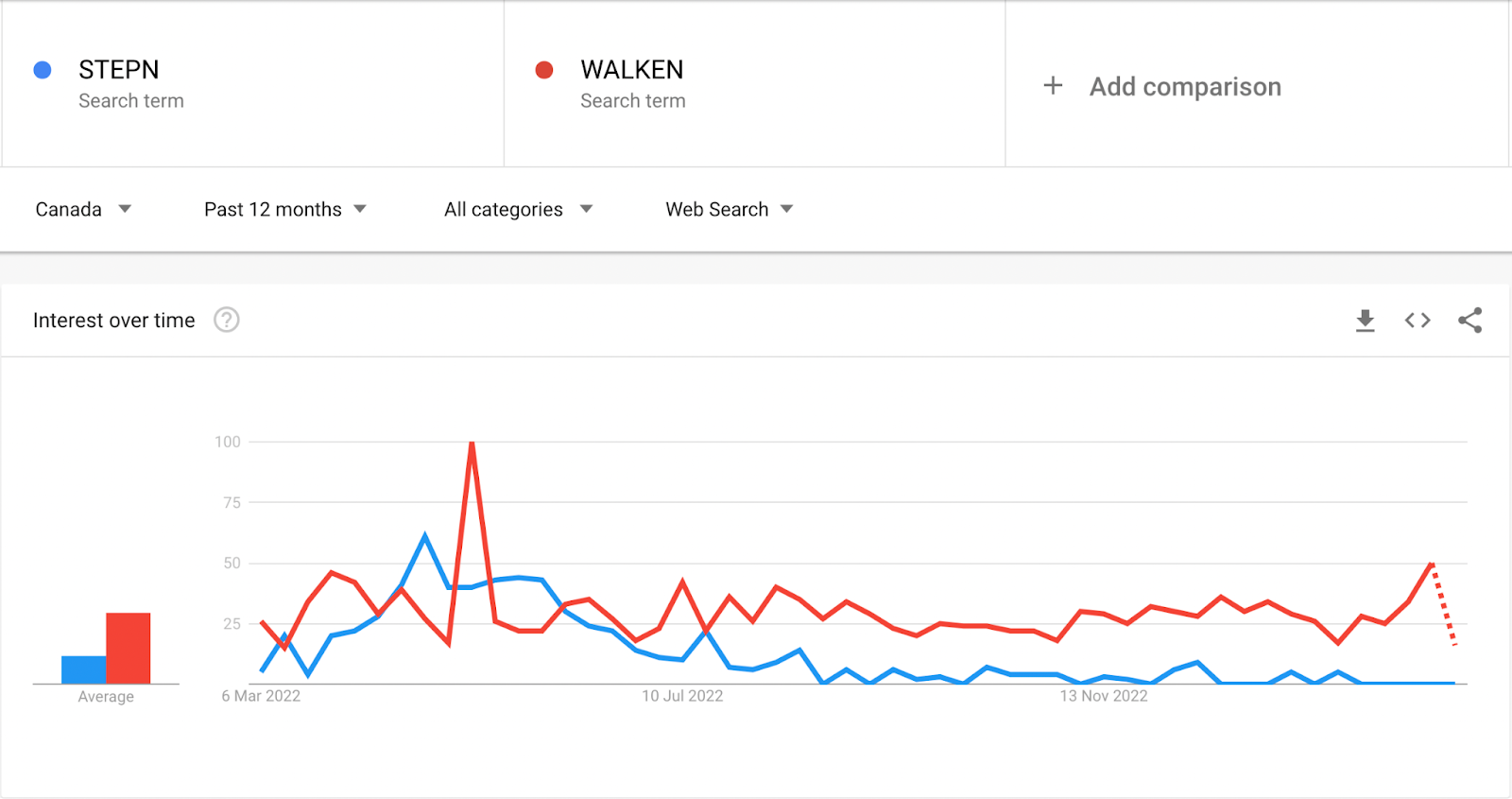 Lessons For Move-to-Earn Projects in 2023
Lessons For Move-to-Earn Projects in 2023 Lessons For Move-to-Earn Projects in 2023
While there are only two widely-recognized M2E titles in the blockchain industry right now, there will undoubtedly be more. Here’s what investors and devs need to know.

Cover art/illustration via CryptoSlate. Image includes combined content which may include AI-generated content.
Move-to-Earn, a protocol that tracks users’ movement via geo-tracking and rewards them for physical activity, gained widespread recognition last May, surpassing GameFi in search interest. However, the genre is essentially just two projects on Solana: Walken and STEPN. The two games have a similar premise but approach tokenomics, gameplay, and design differently.
 GameFi had plenty of copycat projects in the bull market. When one project did well, dozens of carbon copies popped up, hoping to replicate its success. Therefore, even though it has just two representative projects, the M2E space is characterized by relative originality. The genre also presents an innovative and genuinely fun application of blockchain technology.
GameFi had plenty of copycat projects in the bull market. When one project did well, dozens of carbon copies popped up, hoping to replicate its success. Therefore, even though it has just two representative projects, the M2E space is characterized by relative originality. The genre also presents an innovative and genuinely fun application of blockchain technology.
By investigating on-chain activity within Walken and STEPN, we can begin to analyze what works in the genre and what kinds of features we can expect to emerge and succeed in the future.
Timing Matters for GameFi Projects
STEPN launched before the bull market’s peak and, in hindsight, became a victim of its overnight success. It had an enormous jump in market cap when ETH had its April bounce.
All crypto projects are ultimately tied to the macroeconomic conditions, and as alt-coins collapsed in the spring of 2022, so did STEPN. The conditions were exacerbated by the denial of its GPS services for users in China.

While there have only been improvements to the game’s features and UI since those initial months, there has yet to be a recovery in market cap, activity, and token prices.
The game developers are still active and have publicly appeared to discuss rollouts, but the price chart is unavoidable: it looks like a rug.

In the blockchain industry, trust is everything and is invariably linked to momentum, which is hard to regain after a death spiral.
Walken launched seven months after STEPN. While it has a significantly different design and gameplay, it is also an M2E game on Solana. As the market has begun to recover, Walken has seen a user surge and growth.
Walken’s growth compared to STEPN’s isn’t just an optical illusion caused by STEPN’s massive numbers a year ago—Walken has generated more search interest by riding a wave of optimism in GameFi and the Solana ecosystem, as opposed to being stuck in the narrative of regaining former value.

This has translated into a much more positive trend in its NFT trading volume and token price.
While both projects are sleek, mobile-first apps that gamify exercise, narratives matter in GameFi, and communities are fickle. Even if a death spiral was largely unavoidable, a negative narrative has been shown to blunt recovery.
The data indicates that the token price and user activity of a GameFi project is not a simple 1-to-1 correlation with the market. Timing matters, and it helps not to have most users catch a falling knife.
M2E Projects Must Get Users Active (Pardon the Pun)
Both STEPN and Walken are intimidating to new users when first downloaded.
In the author’s opinion, STEPN has a relatively more intuitive onboarding, as the connection between running shoes and running is more direct than between cartoon cats and walking.
That’s not to say STEPN is easy for a crypto newbie. NFT quality, rarity, and mints are foreign concepts. And atop of all this, a user must purchase an NFT to start playing—a big friction point for someone who wants to gamify their daily jog rather than become an NFT trader.
Walken’s gameplay has many elements—Myberries, competitions, clothing, various types of loot boxes, and two-tiered tokenomics (like STEPN and most blockchain games). It’s a lot to jump into for someone not versed in blockchain gaming. However, Walken has much higher retention than STEPN.


There is one significant difference that could serve as an explanation.
New WALKEN users automatically get a CAThlete when they first open the app. The game then starts tracking steps through users’ phones, leading to daily automatic rewards. After that, users simply need to go about their day and click one button to receive GEM and onboard further into the gameplay at their pace. While the Walken home screen might seem intimidating, this approach has less friction than requiring the user to purchase an NFT and then remember to incorporate the app into their daily run manually.
Both approaches have pros and cons, but at the moment, it’s clear which one generates more DAU.
The Difficulty with GameFi Analysis
Many crypto writers and analysts look like goldfish when bandwagoning from one project to another every 8 seconds because of short-term token price increases.
It’s also too easy to fall into reductionist thinking. In this case—it would be reducing the price and activity of the above games to one or two causes. Everyone trying to understand GameFi right now is feeling their way through a house in the dark. Nobody knows what will come next or which project will explode or collapse. Analysis done in hindsight is always accessible and risk-free.
This article just aims to show why timing and new user onboarding matter for M2E titles. Furthermore, a blockchain analytics tool like Footprint Analytics can uncover the relationship between them and a game’s key metrics.
Walken and STEPN take different approaches to M2E and face radically different challenges in making their visions come to life. However, both project teams are some of the strongest in crypto, constantly communicating with their communities in good times and bad. With continual updates and improvements, they are well-poised to set the direction of M2E for the foreseeable future.
The Footprint Analytics community contributes to this piece.
The Footprint Community is where data and crypto enthusiasts worldwide help each other understand and gain insights about Web3, the metaverse, DeFi, GameFi, or any other area of the fledgling blockchain world. Here you’ll find active, diverse voices supporting each other and driving the community forward.
Footprint Website: https://www.footprint.network
Discord: https://discord.gg/3HYaR6USM7
Twitter: https://twitter.com/Footprint_Data
Author: [email protected]
Reference: Use Retention; Walken; STEPN-Solana & BSC







































































































